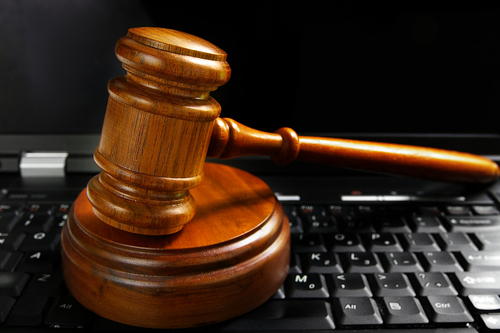Lawyers and Law Firms Prime Targets for Hackers
There are three unquestioned sanctums of confidentiality that everyone is familiar with; a confessional, a doctor’s office, and a law office. But how do they stack up in today’s world of cybercrime and data theft?

Desired Data
Thankfully, we can cross confessionals off the prime targets list for hackers because they are supposed to be done the old-fashioned way - in person, with no electronic data involved, just you and your priest. A doctor’s office, on the other hand, can yield personal information which could lead to identity theft and the possibility of leveraging private information like diagnoses and treatments for material gain. But lawyers and law offices, that’s goldmine territory for hackers. Personal information, corporate information, legal strategies, contract negotiations, financial books, patents, trade secrets, investor information and everything else imaginable can cross a lawyer’s desk, and hackers know it.
Cyber threats aplenty target legal professionals
Because of the wide array of privileged and sensitive information lawyers and law firms routinely deal with, there is no ceiling to the level of threat sophistication they can face. Every kind of hacker must be considered. There are the well-funded and highly advanced cyber armies of foreign nations like China, Russia, Korea and Iran conducting industrial espionage campaigns on a daily basis, private investigators working for the opposition looking for any advantage they can find, organized cyber-crime rings, politically motivated actors, lone-wolf hackers and every type in between, all chomping at the bit to gain access for profit, leverage, or advantage.
In the legal arena, making a “reasonable effort” to protect data is not a choice, it’s a requirement
Protecting paper documents has always been the cornerstone of the legal profession, with routines and procedures refined over time to make the process run like a well-oiled machine - most of the time. For a thief to lay hands on all those hardcopy documents required a physical presence, making it a lot harder to pull off the job. But today, hackers can just let their fingers do the walking. It was one of the main reasons the ABA amended Rule 1.6 in 2012 explicitly stating that, “A lawyer shall make reasonable efforts to prevent the inadvertent or unauthorized disclosure of, or unauthorized access to, information relating to the representation of a client.” And no, simply having off-the-shelf antivirus/antimalware solutions in place may not satisfy “reasonable efforts” when opposing counsel takes aim. That’s when words like sanctions and fines can enter the conversation, and those are words no lawyer or litigant ever want to hear.
It’s time to see where your security stands
The cornerstone of effective cyber security is understanding the threat landscape and identifying the most problematic threat vectors as they pertain to your unique situation. That’s exactly what GDF’s vulnerability assessments and penetration tests are designed to do. We start by looking at the big picture, from policies and procedures being employed internally to secure data, to the entirety of the digital architecture being used. From networks to stand alone systems, from Wi-Fi connections to digital devices like smartphones and tablets, knowing where every bit of data travels is essential. Once that is done, we switch hats and take on the role of a real-world attacker to shine a spotlight on weaknesses. We’ll use everything from brute force attacks to customized spear phishing campaigns, depending on what weak points were uncovered during the initial cyber threat assessment. And with over two decades of dealing with legal professionals in our capacity as a computer forensics and eDiscovery solutions provider, we understand exactly what lawyers and law firms face from both a security perspective and the possible consequences a lack thereof can have on a case in court.
With the Global Digital Forensics, legal professionals have an invaluable ally, formidable on both the cyber security and eDiscovery fronts. So call us today at 1-800-868-8189 for a free consultation with one of our specialists and let us help to tailor solutions that will satisfy your unique needs.